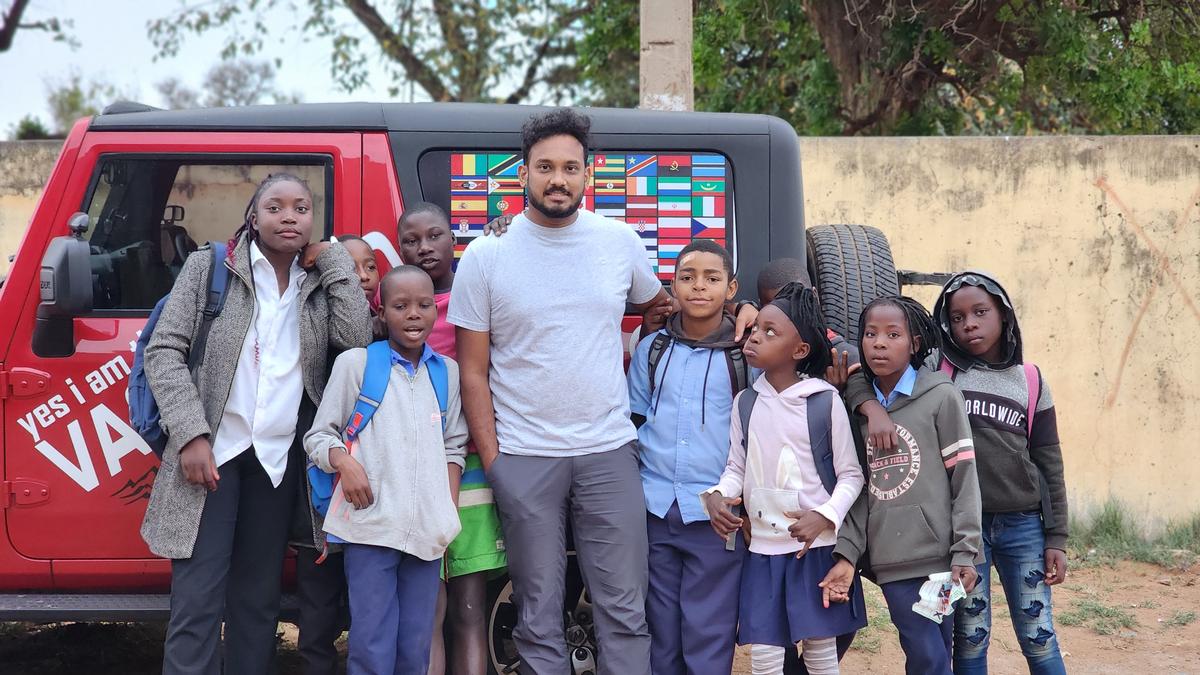
Why is this Malayali YouTuber digging wells in Africa?
The Hindu
Travel vlogger Muhammed Dilshad from Malappuram shares his journey from YouTube to building wells in Africa.
Before his first trip to Kashmir on a Royal Enfield bike in 2019, travel vlogger Muhammed Dilshad from Chelambra, Malappuram had donned many roles— from a bus boy to a parcel lorry driver. However, his foray into YouTube started as a form of journaling, where the 29-year-old traveller could share the experiences of his 45 days of travel which developed into the YathraToday YouTube channel which currently has 907K subscribers and over 153 million views.
In 2021, Dilshad decided to travel to Africa on his bike after a cancelled South Asian trip following the pandemic which forced him to return from the Myanmar border. He covered 14 countries on this African trip. However, more importantly, he faced many realities he had “only seen in photos before. I saw people walking long distances with a yellow drum on their shoulders to collect water. I felt helpless,” says Dilshad over a phone from Qatar. “I decided that if I ever returned, I would bring a 4x4 vehicle, and dig at least 10 wells in Africa,” says Dilshad, who has now built 14 wells after returning to the continent for a second time in 2023 as part of a tour through Asia, Africa and Europe.
Dilshad has covered four countries on this trip — Kenya, Tanzania, Zambia and Mozambique. During his travels, he has encountered unfamiliar tribal traditions, civil wars and multiple run-ins with authorities and much more.
In June 2024, Dilshad constructed the first well in Mombasa, Kenya while he was laying low till protests against the new Kenya Finance Bill subsided. “We were in hiding for a few days there. While we were there, we saw people lining up at a ditch to collect dirty water. That’s when we decided we should dig the first well there,” says Dilshad who was travelling with his friend Fazal. With the help of the locals, he constructed a waterhole at an expense of around ₹10,000, he says.
Dilshad considers digging a well at a government school in Makazi Mapya village in Tanzania one of the highlights of his trip. It took 25 days for completion. “That area is slightly elevated and it is difficult to get water up there. Around 500 families had to make do with two small wells after another one was walled in by a private company,” he says. Dilshad was sceptical of finding water in such a place and told the headmaster that he would dig up to 10 metres and if there were no signs of water, then they would have to drop the project as Dilshad’s visa was about to expire.
“We got water after digging for 12 days,” says Dilshad. “Earlier, students had to travel for 1.5 kilometres to collect water every day and it became the last period of their class.”
“As soon as the water started flowing out through the taps, children came pouring out of their classrooms. But instead of running towards the taps, they came to me, embraced me crying,” recalls Dilshad. “Their fathers and grandfathers who studied in this school also had to fetch water. They no longer have to do it.”













